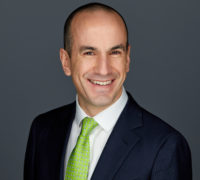
Four principles for flourishing amid disruption
When the world is constantly changing, do you know how to successfully leap from one core competency to another? ...

by Arnaud Chevallier, Frédéric Dalsace, Jean-Louis Barsoux Published 19 April 2024 in Brain Circuits • 3 min read
Our research reveals that strategic questions can be grouped into five domains: investigative, speculative, productive, interpretive, and subjective. Each unlocks a different aspect of the decision-making process. Together, they can help you tackle key issues that are all too easy to overlook.
Here’s a brief rundown of the types of questions that make up our framework and how to formulate them:
Keep these five domains in mind. Consider addressing them in group meetings. In high-stress situations, it may be hard to cover all five kinds of questions, but awareness and involvement of more team members can help.
To reveal potential blind spots or over-reliance in your own question mix, we’ve developed a new tool: the leader’s question mix.

Professor of Strategy at IMD
Arnaud Chevallier is Professor of Strategy at IMD, Director of the Global Management Foundations program, and Co-Director of the Complex Problem Solving program. His research, teaching, and consulting on strategic thinking bridges disciplines to provide concrete tools to improve decision making and corporate problem solving. He has written two books: Strategic Thinking in Complex Problem Solving and Solvable: A Simple Solution to Complex Problems, co-authored with Albrecht Enders.

Professor of Marketing and Strategy at IMD
Frédéric Dalsace focuses on B2B issues sustainability, inclusive business models, and alleviating poverty. Prior to IMD, he spent 16 years as a Professor at HEC Paris where he held the Social Business / Enterprise and Poverty Chair presided by Nobel Laureate Professor Muhammad Yunus. Prior to his academic life, Frédéric accumulated more than 10 years of experience in the business world, both with industrial companies (Michelin and CarnaudMetalbox) and as a strategy consultant with McKinsey & Company. At IMD he is Co-Program Director of the Leading Customer – Centric Strategies program.

Research Professor at IMD
Jean-Louis Barsoux helps organizations, teams, and individuals change and reinvent themselves. He was educated in France and the UK, and holds a PhD in comparative management from Loughborough University in England. His doctorate provided the foundation for the book French Management: Elitism in Action (with Peter Lawrence) and a Harvard Business Review article entitled The Making of French Managers.

10 hours ago • by Howard H. Yu in Brain Circuits
When the world is constantly changing, do you know how to successfully leap from one core competency to another? ...

23 April 2024 • by Francesca Giulia Mereu in Brain Circuits
In part one of this two-part series, we advised on sparking new habits. Here, in part two, we offer a checklist to help ingrain them. ...

22 April 2024 • by Francesca Giulia Mereu in Brain Circuits
Building new habits can help you optimize your energy output. Check out these four steps to get started on creating new, sustainable habits with positive results. ...

19 April 2024 • by Arnaud Chevallier, Frédéric Dalsace, Jean-Louis Barsoux in Brain Circuits
Over time, successful leaders develop a mix of questions that help them make decisions. Find out what your own question mix is and what you might do to update it. ...
Explore first person business intelligence from top minds curated for a global executive audience